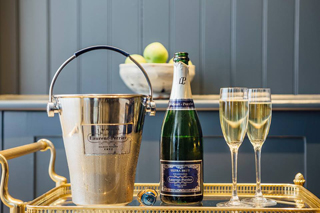What a gift!
 The generosity of donors and their families gives over 3,000 people in the UK a new lease of life every year.
The generosity of donors and their families gives over 3,000 people in the UK a new lease of life every year.
On 1 December 2015, Wales will be the first UK country to introduce a soft opt-out system for organ and tissue donation. If you live in Wales for more than 12 months and don’t register to opt-out of organ donation then it will be presumed that you have no objection to being an organ donor. This is called deemed consent. This means it should be easier for donation to be given even if a donor card isn’t evident or relatives haven’t had a discussion about the deceased wishes.
In 2012/13, 36 people died in Wales whilst waiting for an organ transplant, as a donor could not be found.
In the same year statistics show that of the thirty thousand deaths only around 250 people died in a way that would enable them to have been donors but only 67 donated. Donations are possible when death is caused by cardiac arrest or brain stem death. Maybe it is when death is sudden, the environment and emotion makes it tricky for relatives to consent to removal of organs at such a poignant time. The NHS document ‘Taking Organ Transplantation to 2020’ cites that even when the deceased has requested organ donation, 40{c8c3b3d140ed11cb7662417ff7b2dc686ffa9c2daf0848ac14f76e68f36d0c20} of relatives in UK refuse consent for this wish to be granted.
 This document also outlines strategies to ensure everyone in the UK understands that without donation there can be no transplantation. Public awareness without action will not increase the numbers. Donation should be seen as a responsibility and a feature of good citizenship. Donation should be something that people are proud of and actions need to include a trained team placed in hospital to show empathy and the importance of carry out the loved one’s wishes.
This document also outlines strategies to ensure everyone in the UK understands that without donation there can be no transplantation. Public awareness without action will not increase the numbers. Donation should be seen as a responsibility and a feature of good citizenship. Donation should be something that people are proud of and actions need to include a trained team placed in hospital to show empathy and the importance of carry out the loved one’s wishes.
This article is very close to my heart, a very dear friend has been on the transplant list for three years when two weeks ago she got the call from Oxford Transplant Team to say that they had been blessed with organs that may be compatible. The operation was carried out within the next 24 hours and she was out of ICU and walking around within a few days later. Her husband said that he felt like he had won the lottery as such a humbling gift will change all of their lives.
I became a registered donor after watching a television programme when a relative of a donor was found by the recipient of her sister’s heart after a fatal car accident. The most poignant and comforting moment was when she felt the donated heart beating inside his chest. Although only a drama I could see how reassuring it would be for the sister to know that her loved one had helped others to live a full life after her early departure.
If you feel that you would like to join us in giving a chance of life to people after your death, please go to https://www.organdonation.nhs.uk/register-to-donate/ as the ‘opt-out system’ isn’t in place in Cornwall and England yet.
 More good news to help celebrate this time of year! A study carried out by University of Reading has been looking into the benefits of drinking champagne 1-3 glasses a week and how it can help prevent Dementia and Alzheimer’s disease. There is a compound in Pinor Noir and Pinor Meunier grapes that makes it bubbly, said to prevent brain disease and could possibly help cognitive functioning of memory. And to celebrate the launch of the luxury Linen Rooms Spa at Merchants Manor just over the water in Falmouth from now until the end of December you can have a complimentary glass of Laurent Perrier Ultra Brut champagne with every therapy booked. Simply quote bubbles when booking then relax, you are in safe hands.
More good news to help celebrate this time of year! A study carried out by University of Reading has been looking into the benefits of drinking champagne 1-3 glasses a week and how it can help prevent Dementia and Alzheimer’s disease. There is a compound in Pinor Noir and Pinor Meunier grapes that makes it bubbly, said to prevent brain disease and could possibly help cognitive functioning of memory. And to celebrate the launch of the luxury Linen Rooms Spa at Merchants Manor just over the water in Falmouth from now until the end of December you can have a complimentary glass of Laurent Perrier Ultra Brut champagne with every therapy booked. Simply quote bubbles when booking then relax, you are in safe hands.
Merry Christmas and best wishes,

